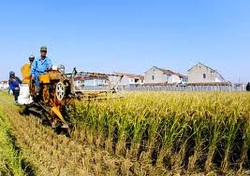Description Of Traditional Economy

A traditional economy is a type of economic system where customs, beliefs, and traditions play a significant role in determining the production, distribution, and consumption of goods and services. This type of economy is often found in rural or isolated areas, where the community is closely knit and the way of life has been passed down from generation to generation. In a traditional economy, the primary focus is on meeting the basic needs of the community, rather than on maximizing profits or economic growth.
One of the key characteristics of a traditional economy is its reliance on custom and tradition. Economic decisions are often made based on what has been done in the past, rather than on what is most efficient or profitable. This can lead to a lack of innovation and progress, as new ideas and technologies may be slow to be adopted. However, it also helps to preserve the cultural heritage and social fabric of the community. For example, in some traditional societies, the production of goods is often done using traditional methods and techniques, such as handicrafts or subsistence farming.
Key Points
- A traditional economy is based on customs, beliefs, and traditions
- The primary focus is on meeting the basic needs of the community
- Economic decisions are often made based on custom and tradition
- There is a reliance on traditional methods and techniques
- Traditional economies are often found in rural or isolated areas
Characteristics of a Traditional Economy

A traditional economy has several key characteristics that distinguish it from other types of economic systems. These include:
Limited Specialization
In a traditional economy, there is often limited specialization of labor. This means that individuals may be involved in a wide range of activities, such as farming, crafting, and trading, rather than specializing in a single occupation. This can make it difficult to achieve economies of scale and increase productivity, but it also helps to preserve traditional skills and knowledge.
Bartering and Exchange
Traditional economies often rely on bartering and exchange, rather than using money as a medium of exchange. This can make it difficult to compare the value of different goods and services, but it also helps to build strong social relationships and a sense of community. For example, in some traditional societies, goods and services are exchanged based on their perceived value, rather than their monetary value.
Self-Sufficiency
Traditional economies are often self-sufficient, meaning that they produce most of the goods and services they need within the community. This can make them more resilient to external shocks, such as economic downturns or natural disasters, but it also limits their ability to trade with other communities and access new technologies and innovations.
| Characteristics | Description |
|---|---|
| Limited Specialization | Individuals are involved in a wide range of activities |
| Bartering and Exchange | Goods and services are exchanged based on their perceived value |
| Self-Sufficiency | The community produces most of the goods and services it needs |

Advantages and Disadvantages of a Traditional Economy

Traditional economies have both advantages and disadvantages. Some of the advantages include:
Preservation of Traditional Skills and Knowledge
Traditional economies help to preserve traditional skills and knowledge, such as handicrafts, farming, and other crafts. This can be an important part of a community’s cultural heritage and identity.
Strong Social Relationships
Traditional economies often rely on strong social relationships and a sense of community, which can help to build trust and cooperation among community members.
Environmental Sustainability
Traditional economies are often more environmentally sustainable, as they rely on local resources and production methods that are less polluting and damaging to the environment.
However, traditional economies also have several disadvantages, including:
Limited Economic Growth
Traditional economies are often limited in their ability to achieve economic growth and development, as they rely on traditional methods and techniques that may not be as efficient or productive as modern technologies.
Limited Access to New Technologies and Innovations
Traditional economies may have limited access to new technologies and innovations, which can make it difficult for them to compete with other economies and improve their standard of living.
Vulnerability to External Shocks
Traditional economies can be vulnerable to external shocks, such as natural disasters, economic downturns, and other external factors that can disrupt their production and distribution systems.
What is a traditional economy?
+A traditional economy is a type of economic system where customs, beliefs, and traditions play a significant role in determining the production, distribution, and consumption of goods and services.
What are the characteristics of a traditional economy?
+Traditional economies have several key characteristics, including limited specialization, bartering and exchange, and self-sufficiency.
What are the advantages and disadvantages of a traditional economy?
+Traditional economies have both advantages and disadvantages. Some of the advantages include the preservation of traditional skills and knowledge, strong social relationships, and environmental sustainability. However, traditional economies also have several disadvantages, including limited economic growth, limited access to new technologies and innovations, and vulnerability to external shocks.
In conclusion, traditional economies are complex and multifaceted systems that have both advantages and disadvantages. While they may not be as efficient or productive as modern economies, they provide valuable lessons for modern societies and help to preserve traditional skills and knowledge, build strong social relationships, and promote environmental sustainability.